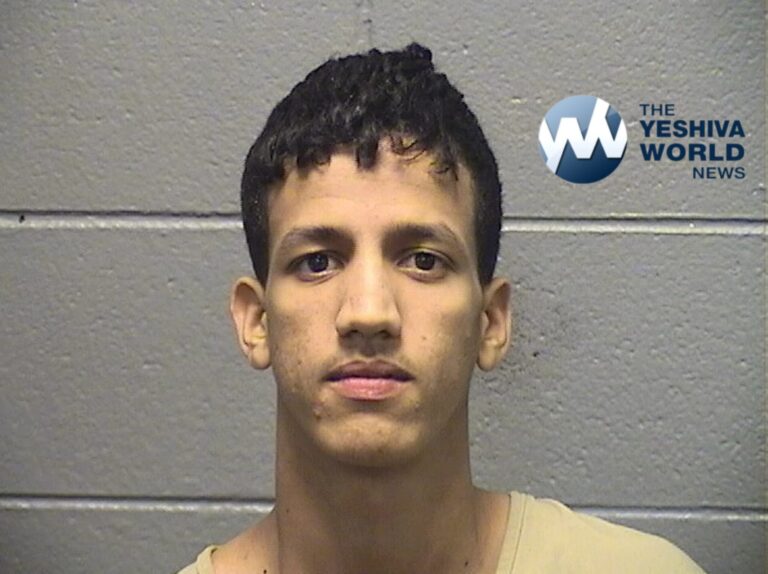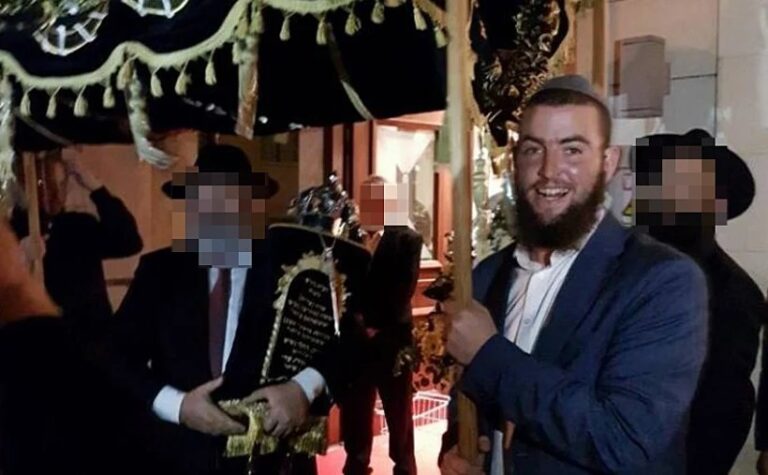By Rabbi Yair Hoffman for the Five Towns Jewish Times
Their mothers live among us and are relatively invisible. They have children who have no one to take them to shul. They have no one to take them to father & son learning programs. Rarely do they get a Shabbos meal invitation. Their social lives are awkward at best.
They bear an almost unbearable burden. Most are financially insecure and have their hands full just making it through the week. Often they experience such legal strains and financial stress that the strongest among would buckle under the pressure.
They are the divorced women who live in our communities – a group whose numbers are growing dramatically. And true, there are fantastic people – the Rabbi Dovid Greenblatts, the Rabbi Yaakov Benders, the Dov Wolowitzs of the world, and others, but somehow it is not enough.
THE HALACHA
What does halacha say about these women and their plight? The psukim in the Torah tell us about orphans, widows and converts. But what about the growing number of divorcees? And if, in fact, the answer is that we should devote more resources to this invisible group.
A few years ago, one such woman approached a number of Gedolim in Eretz Yisroel about the plight of divorcees an obtained a remarkable letter. Because there was a slight factual miscommunication in the recipient of the letter – there was a delay in the publication. The three Gedolim? Rav Aron Leib Shteinman Shlita, Rav Chaim Kanievsky Shlita, and l’havdil – Rav Michel Yehuda Lefkowitz zt”l. The letter is translated below:

To the Honorable Organization..
We have heard of the remarkable acts of chessed that you do with widows, rachmana litzlan, in a most befitting manner. Now you approach with a question in regard to divorced women:
Do they have the same a similar halachic status in regard to Tzedaka and in the manner in which to deal with them on an equal basis?
Our opinion is that the circumstances and situations are equal in their importance.
May the Holy One Blessed Be He enable you to continue in your blessed handiwork.
One who signs with wishes of blessing,
[Rav] Michel Yehudah Lefkowitz, Bnei Brak 5769 [zt”l]
We too join with what has been mentioned above,
[Rav] A.L. Shteinman
[Rav] Chaim Kanievsky
A FAMOUS PASUK WHOSE MEANING FEW UNDERSTAND
There is a pretty famous verse in the Torah whose true meaning has eluded the vast majority of people – Zeh Kaili v’Anveihu. Most people only understand it to mean that when it comes to items involving a Mitzvah, we should spend to buy the fancier and better one.
We see from the Gemorah in (Shabbos 133b) an entirely different explanation of it. Rav Yitzchok Isaac Sherr zatzal explains (Leket Sichos Mussar p.76) that the pasuk of “Zeh Kaili v’Anveihu” teaches us the obligation of feeling and understanding that the performance of Chessed brings us closer to Hashem.
This is on account of the Gemorah’s understanding of the word “Anvehu” to mean “Ani v’hu – I and Him.” The meaning of this Pasuk is therefore, “This is my G-d, and I shall bind myself to Him. I know that I can accomplish this binding through the notion of performing acts of Chessed.” The consequences of this particular Pasuk are an obligation of thought: It is something that we must think – Chessed binds us to Hashem – Ani VeHu.
The existence of this group of people then, provides us with an opportunity similar to that of a shul. What is one of the main purposes of davening? It is to form a close bond with Hashem. Chessed does the same thing, and according to this Gemorah in Shabbos – it is a halachic obligation of thought to realize this.
MAKE THEM FEEL AS A PERSON AND NOT CHESSED
One very important point that we must have in mind is that it is the greatest chessed for chessed not to be done as if it is chessed. All people have what to contribute, in conversation and in social activity. Our obligation is to realize that everyone is created B’Tzelem Elokim in the image of Hashem and that there is depth to who they are as people. Their social contribution, their thoughts and opinions matter and they are enjoyable company.
There was a famous bakery owner in Williamsburg. Mr. Gelb, who not only gave needy people Challah and cake for Shabbos and Yom Tov, but also gave them change so that their self-esteem would remain intact. An even higher level that can sometimes be achieved is to actually render any assistance in such a manner that even we do not detect or perceive it as chessed per se.
PRACTICAL STEPS
So, practically, what does this mean? We can help in two ways. Boruch Hashem one of our askanim, Rabbi Dovid Greenblatt, each year, helps an excellent organization called, “Sister to Sister.” This organization is a remarkable way in which one can lend assistance to this invisible group.
A second way, however, is to seek out members of this invisible group and actively help them. Boruch Hashem, some of these divorcees have an ex that cares enough about his children to provide for them even more than the court-mandated child support. Others often get a pittance and some not even at all.
MEN TOO
We must also not forget that divorced men, as well, need to be welcomed in our homes and need emotional support and assistance. Often men are perceived as the evil ones when, in fact, they too have suffered enormously. Whatever happened in a marriage is not our concern. Ahavas Yiroel and Chessed must be applied to all parties – these Mitzvos are gender neutral.
TZNIUS
When helping them, it should, of course, be done in the most tznius manner as possible, and with the contributions of both the husband and wife. There are many ways to do this. It should also be done in a manner where they do not feel that you are doing it as a chessed.
• Learn with the child
• Notice kids in shul
• Offer to take the children out with yours on an outing
• Help keep up with the homework
• Shabbos invitations – realize that often their families cannot take them back
• Extend invitations earlier rather than later
• Occasional financial help or a gift
• Offer to babysit once a month
• Ask if they need anything at Costco
• Offer to build them a Sukkah – or to use yours
• Ask in general, “Is there anything specific I can do for you?”
• Just call to say hello
• Share your husband’s flowers with her
• Get to know their favorite food items and that of their children
• Suggest shidduchim when possible and appropriate
• Suggest shidduchim for their children
• Help them deal with fixing the house
• Help them deal with fixing their car
• Help them deal with the IRS
• Help them in general negotiations
• Help them ensure that their kids have friends
• Sheitels – look out for a new one for them.
• Avoid avoiding them
• Don’t be judgmental
• Don’t stigmatize
• Don’t say things in a pitying way
• Be sensitive to call them back
• Avoid saying insensitive things or asking insensitive questions
LOVING CHESSED
The posuk in Micha (6:8) states, “..What does Hashem require of you? Merely to do justice and love Chessed..” The idea is that we must foster and develop a love of Chessed. Rav Sherr explains that there are three elements to this love:
1] To love doing acts of Chessed ourselves.
2] To love and appreciate a situation where Chessed is being performed by others – either for another or for others.
3] To love the existence of opportunities for Chessed in the world.
The Chofetz Chaim writes (Ahavas Chessed 2:1) that not only must one love Chessed but one must stick to this character trait and always go beyond the measure of what is required. He give the analogy of a parent. A loving parent gives more food and clothing than the child requires, so too must we do likewise in sticking to the Midah of Chessed.
CONCLUSION
The dramatic rise in divorces provides us all with an unprecedented opportunity for chessed. These opportunities should be done, when possible, with the utmost consideration and thought for their self-esteem and self-perception. These are the sons and daughters of Avrohom Avinu, Yitzchok Avinu, and Yaakov Avinu, and should be treated in lie with their stature.
The author can be reached at [email protected]












17 Responses
in my opinion , you should devote as much space about this problem to the men as you do to the ladies , and not leave the men as a afterthought.
I second the motion!
If one of the parties goes unwarranted to the authorities they likely have a din of a Moser r’l and halachiclly are worse than a meshmod! This will likely have effect on the halacah regarding tzdekah. Ask a authentic Orthodox Rabbi
In addition the shulcan orach in hilchos tzdekah differentiates between one who sins out of lust or one who sins out of defiance. Once again, it would be advisable to speak to a authentic recognized Orthodox Jewish Rabbi.
It is certainly a mitzva to help these women. But why do you make it sound like the women are the rachmonus, and the man, sometimes cares enough about his child to help support him. And then in the paragraph about men, you say that we have to help them, regardless, as its a mitzvah. All that is true. But it appears that you assume the women are victims, and the men, well, they are Jewish so we have to help them anyway.
This is so far from the truth. There are probably as many men that are victims as women. Each case is different, and there are many different reasons why people get divorced, and we are not here to judge. But it is very clear that many of the victims are men, and its disheartening when a beautiful article is written, asking for help for these unfortunate members of our society, and the feeling is that the man is in the wrong.
You should always help whomever you can, especially a vulnerable divorcee who surely can use the chizuk. But make sure to be kind to both men and women, and understand that you don’t understand what they went thru, and definitely don’t know who was at fault. (and it can even be the woman).
It’s a great article… Very important message to bring awareness.. yet there’s an even greater issue to write about. The issue of mother’s trying to legitimize their alianation of their children from the father. It’s usually with lines like “the father is…. Therefore it’s not good for the children…” Most children do have a real father to take them to shul etc. it’s the mother That’s not allowing the equel parenting. Ok enough said….
Rabbi Ehrlich: Thank you for raising a important point. One question, why do you sign off enough said?! Let’s let the silent majority be heard. Lo alinu hmalacah ligmor however we each must make our hishtadlus! Rabbosi, let your voices be heard until the Rabbanim shlita hear us loud and clear.
What about men? I have a different perspective, I think. I’m divorced. Both sides are to blame. That said, the Talmud comments that a man who marries a wicked or an unpleasing wife, someone who is only just mean to him, this is a punishment for him that he is paired with such a wife. Yet, because he has a katubah he has obligations to her that he has to meet until such time that he gives her a get.
The prophet Hosea exclaims in a sentence that has two translations, according to the Talmud. One translation is something like, “God hates divorce,” and the other is that “God hates the one who divorces”. Something like that.
Divorced men do not need the attention and care that divorced women do, especially those women who have children. This is a generalization and there’s plenty of examples otherwise, but the generalization still stands.
I cannot cite my sources for my Talmudic references. But let’s not minimize or trivialize the plight of women with a male crescendo of, “Me too.” There is no parity, a divorced woman versus a divorced man.
Please note! Judaism is not about touchy feely. There are laws that must be followed. Often those laws incorporate the emotional. However, it’s always mind over matter. Aseh Lecha Rav!
The children are the issue here. The children need men to study with them. The children need men to lift them up on Simchat Torah and help them to join in, instead of feeling left out. Placing blame of the father or mother as to why there is no study partner is not fair. Saying “the father already does it” is often incorrect. Saying “the mother doesn’t let him do it is also often incorrect. The children suffer through no fault of their own in these cases. Please help them and do not excuse not helping them by blaming their parents.
danshaf , Divorced men DO need the attention and care that divorced women do, especially those who have children. Women generally have friendships to fall back on for support and make friends more easily. The men are usually left alone with little or no support network. (And don’t tell me men can make friends at shul or a minyan. That’s nonsense. The married men go their separate ways after davening.) Also, any decent man wants to maintain a connection with his kids, and it’s as hard for a man to be a single parent when his kids are with him as it is for a woman.
bronxyid, all that you write is notwithstanding that halacha trumps all. A man of faith will do what he can and also with quiet resolution he will say to himself, “This should be a koporah (an atonement). One must reflect back on the response from Aaron brother of Moses, after the death of his two sons. “And he was quiet.” That doesn’t mean that he didn’t mourn, that he didn’t lament. Of course he did, these were his children.
A man must do what he can but not at the expense of the woman. That’s just the way it is. I speak from experience.
The Gate of Tears never closes.
danshaf, What you are saying is not halacha. It’s you’re own opinions masquerading as halacha. Halacha does not nullify that we yidden are rachamim bnei rachamim. Halacha does not justify your insensitive, self-righteous comments such as
“A man of faith will do what he can and also with quiet resolution he will say to himself, ‘This should be a koporah (an atonement).” A man of faith can complain too. If you don’t like it, too bad. It’s the Chr**tchians who believe in “turn the other cheek”. Not Jews.
danshaf, Also, saying “A man of faith will do what he can and also with quiet resolution he will say to himself, ‘This should be a koporah (an atonement)” is simply a convenient way of not having to care about other people by foisting a question of faith on others. It’s comments like that which cause people to have LESS faith in yiddishkeit when someone asserts alleged halacha as an excuse not to care.
We must address the illness not the symptoms! Much of the strife r’l is a direct result of individuals creating unnecessary hype and hysteria. Every marriage has its individuality. The couple has to take responsibility and act mature and respectful especially if Hashem entrusted them with children! To hasten the process it has been suggested that quarreling couples review a blank divorce agreement. If reconciliation is possible this may be the catalyst if not it should save, agmas nefesh, time, money etc….
Broinxyid, you seem to be clueless to what I do say, let alone what I don’t say. Hence, the vituperation. I wrote clearly and yet you misinterpret, as well as ascribe all kinds of bad motives to me. You can re-read, and start with the premise that I write from a perspective of sympathy and also from ahavat Yosroel. Start there and then fill the mold. What do you think, that I don’t know that we are not “turn the other cheek” people? And how do you categorize the reading of the matyrs on Yom Kippur, “Accept it upon yourself, this is a decree from Heaven.” It’s all about faith.
Good golly, of course we complain, that’s what “shema koleinu” is all about in the Amidah.
Wow, talk about getting it ALL wrong.
danshaf, I re-read your comments, and though you may profess that they come come “a perspective of sympathy and also from ahavat Yosroel”, it’s not shown in your words.
You argue that men complaining about their situations somehow does “minimize or trivialize the plight of women”. That’s ridiculous. It’s not a zero sum situation. There can be, and their should be, some sensitivity for the situations of BOTH divorced men and divorced women. You have no right to minimize or trivialize the plight of divorced men. If you are uncomfortable with a man pointing out the difficulties he faces, then too bad.